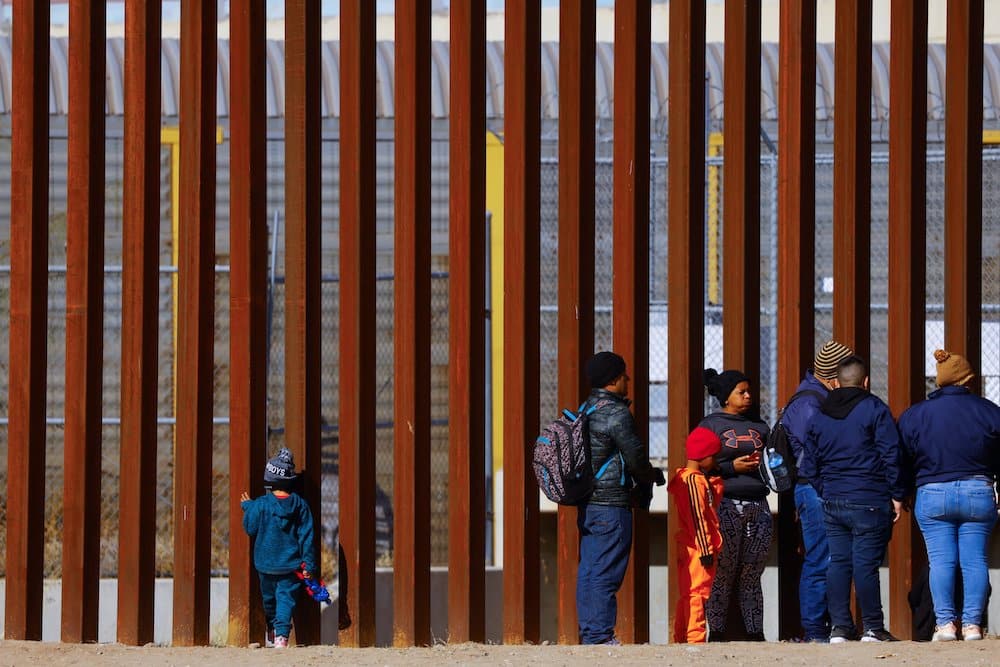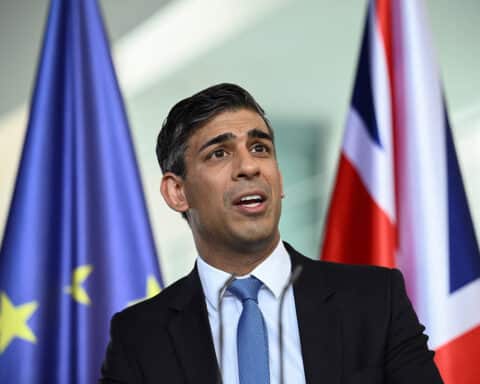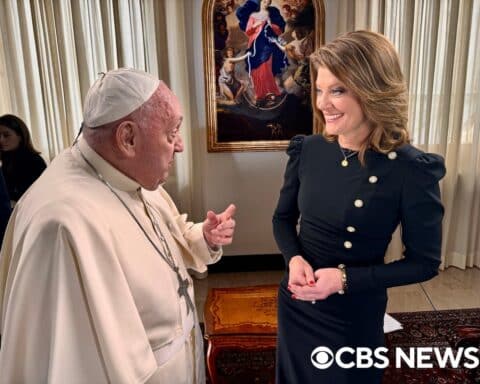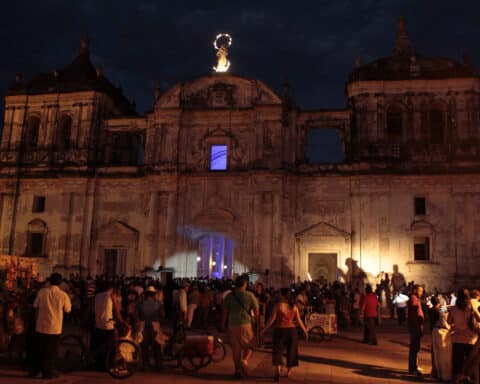(OSV News) — Eight U.S. Catholic bishops whose dioceses share a border with Mexico reaffirmed their commitment to promoting human dignity and their cooperation with government officials as the Church and its partner organizations provide humanitarian aid.
“Daily, we witness the human consequences of migration, both its blessings and its challenges,” the bishops said in a May 12 statement released by the U.S. Conference of Catholic Bishops. “As pastors of border communities, we minister to migrants and native-born persons alike. Our congregations include asylum seekers, enforcement officers, landowners, and elected officials, who come together, not as strangers or adversaries but as sisters and brothers, equal in dignity and worth before the Lord.”
The statement came the day after the May 11 expiration of Title 42, a federal U.S. public health law granting the federal government some authority to implement emergency action to prevent the spread of contagious diseases by prohibiting some migrants from entry. It expired in tandem with the end of the federal public health emergency declared in 2020 for COVID-19.
With the end of Title 42, U.S. immigration policy defaults to a set of laws known as Title 8. While the status of some migrants not eligible for U.S. entry under Title 42 may change, recent Title 8 policy updates suggest those migrants may face new hurdles. Both Title 42 and Title 8 have been criticized by Catholic immigration advocates as insufficient, especially for migrants seeking asylum.
The bishops did not specifically refer to U.S. immigration policy in their statement, or connect their statement to recent events.
“Since our nation’s founding, Catholics across this country have been at the forefront of efforts to welcome newcomers of all faiths and nationalities,” the bishops said. “As Christians, we are called to see the face of Christ in those who suffer, those who lack the basic necessities of life, and we judge ourselves as a community of faith by the way we treat the most vulnerable among us. We are each bound by a universal call to serve one another and to protect the sanctity of human life in all its forms.
“Therefore, we remain committed to supporting the efforts ongoing within our dioceses and beyond to promote the God-given dignity of every person, including those who have recently arrived in our communities. Further, as a Church committed to the common good, we always cooperate in the administration of humanitarian aid with local, state, and federal officials, frequently in partnership with faith communities and like-minded secular organizations.
“Finally, we join together in prayer, entrusting these works of mercy to Our Lady of Guadalupe as a source of unity throughout the Americas,” they said. “May each of us be blessed with a humanitarian heart that beats with fraternal compassion for those in need.”
The statement noted the bishops were endorsing the statement “as the pastors of the U.S. communities along the southwest border.”
Signatories were Cardinal Robert W. McElroy of San Diego; Archbishop Gustavo García-Siller of San Antonio; Bishop Peter Baldacchino of Las Cruces, New Mexico; Bishop Daniel E. Flores of Brownsville, Texas; Bishop Mark J. Seitz of El Paso, Texas; Bishop Michael J. Sis of San Angelo, Texas; Bishop James A. Tamayo of Laredo, Texas; and Bishop Edward J. Weisenburger of Tucson, Arizona.
Bishop Flores is chairman of the USCCB Committee on Doctrine, and Bishop Seitz is chairman of the USCCB Committee on Migration.





